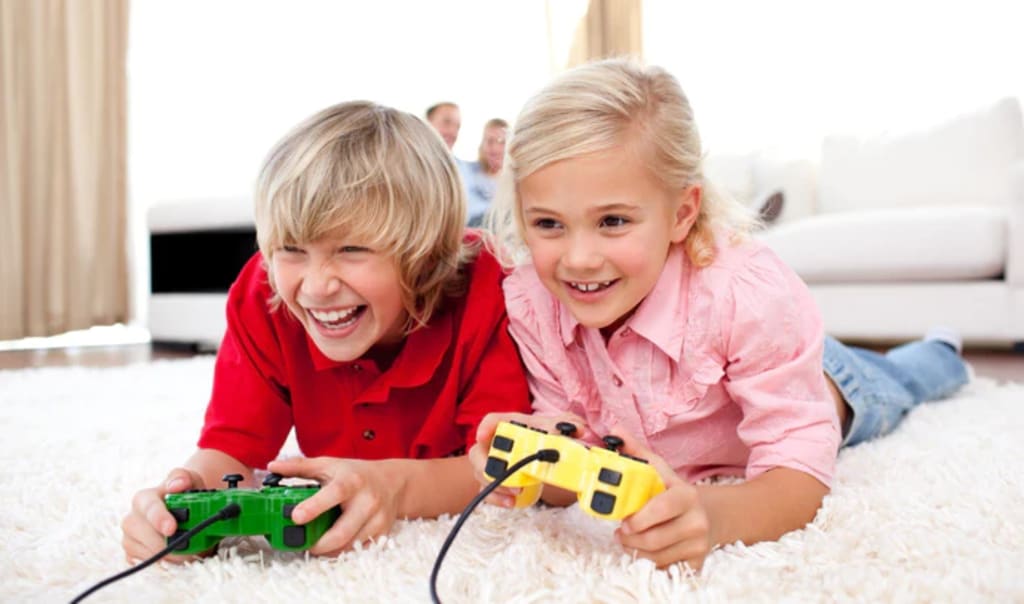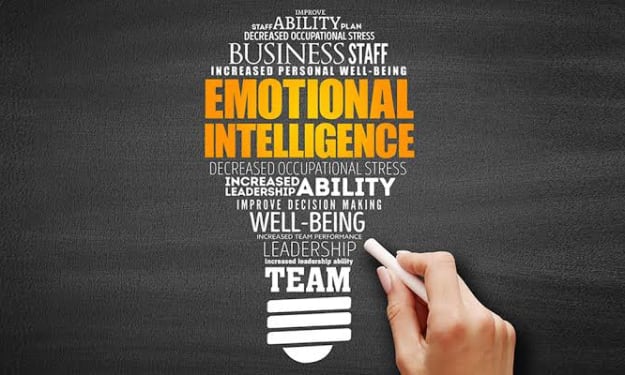The Effects of Gaming
on Teenage Brain Development and Behavior

The Effects of Gaming on Teenage Brain Development and Behavior
Introduction:
Gaming is a popular activity among teenagers, and it has become a significant part of their daily routine. As technology advances, gaming has become more accessible and immersive, leading to concerns about its impact on teenagers' brain development and behavior. This article explores the effects of gaming on teenage brain development and behavior, including the positive and negative effects.
Positive Effects of Gaming on Teenage Brain Development
Gaming has been found to have some positive effects on teenage brain development. Studies have shown that gaming can improve cognitive skills such as attention, spatial awareness, and decision-making. Furthermore, playing certain games can help teenagers develop problem-solving and strategic thinking skills that can be applied in real-life situations. These skills can also help teenagers develop a growth mindset, where they learn to approach challenges as opportunities to learn and improve.
Gaming is a popular activity among teenagers, and while it has received criticism for its potential negative effects, there are also many positive effects of gaming on teenage brain development. In this article, we will explore the positive effects of gaming on teenage brain development and provide evidence-based information to help teenagers and parents understand the benefits of gaming.
Attention and Concentration
Gaming requires a high level of attention and concentration, and studies have found that playing games can improve these cognitive skills. A study published in the journal Nature found that playing action games, such as first-person shooter games, can improve attention and reduce distractibility. The study showed that gamers who played action games for just five hours showed a significant improvement in their ability to maintain attention compared to non-gamers.
Spatial Awareness
Many games require players to navigate virtual environments and solve puzzles, which can improve spatial awareness and visual processing skills. A study published in the journal Psychological Science found that playing video games, particularly action games, can improve spatial attention and the ability to mentally manipulate objects.
Decision-Making
Gaming often requires players to make decisions quickly and under pressure, which can improve decision-making skills. A study published in the journal Nature found that playing real-time strategy games, such as StarCraft, can improve cognitive flexibility and the ability to make quick decisions.
Problem-Solving and Strategic Thinking
Many games require players to solve puzzles and use strategic thinking to progress through levels. These skills can be applied in real-life situations and are important for academic and professional success. A study published in the Journal of Educational Psychology found that playing strategy games, such as chess or Risk, can improve problem-solving skills and academic performance.
Growth Mindset
Gaming can also help teenagers develop a growth mindset, where they learn to approach challenges as opportunities to learn and improve. In many games, players must fail multiple times before succeeding, which can teach resilience and persistence. A study published in the journal Developmental Psychology found that playing puzzle games, such as Tetris, can improve cognitive skills and promote a growth mindset.
Gaming can have many positive effects on teenage brain development, including improving attention, spatial awareness, decision-making, problem-solving, and promoting a growth mindset. However, it is important to maintain a healthy and balanced approach to gaming to avoid potential negative consequences, such as addiction and negative effects on mental health and overall wellbeing. By understanding the positive effects of gaming and using it as a tool for cognitive development and entertainment, teenagers can enjoy the benefits of gaming while minimizing potential risks.
Regenerate response
Negative Effects of Gaming on Teenage Brain Development
However, there are also negative effects of gaming on teenage brain development. The most significant concern is the impact of gaming on the brain's reward system. Gaming stimulates the release of dopamine, a neurotransmitter associated with pleasure and reward. When teenagers engage in gaming, they can become addicted to the release of dopamine, leading to negative effects on their mental health and wellbeing. In extreme cases, gaming addiction can lead to depression, anxiety, and other mental health disorders.
Impact of Gaming on Teenage Behavior
Gaming can also have an impact on teenage behavior, both positive and negative. Positive effects include increased socialization and teamwork skills, as many games require players to work together to achieve a common goal. Additionally, gaming can be a stress reliever, providing an outlet for teenagers to unwind and relax. However, there are also negative effects of gaming on teenage behavior, including increased aggression, reduced empathy, and desensitization to violence. These effects have been observed in teenagers who engage in violent video games, and there is concern that exposure to violent content can lead to real-life aggression and violent behavior.
Strategies to Mitigate Negative Effects of Gaming on Teenage Brain Development and Behavior
Given the potential negative effects of gaming on teenage brain development and behavior, it is essential to develop strategies to mitigate these effects. One approach is to limit the amount of time teenagers spend gaming each day. The American Academy of Pediatrics recommends that teenagers spend no more than two hours per day on screen-based activities, including gaming. Parents can also set rules around gaming, such as limiting gaming time to certain hours of the day or requiring teenagers to complete homework and chores before gaming.
Another strategy is to encourage teenagers to engage in other activities that promote brain development and wellbeing, such as physical exercise, reading, or creative hobbies. These activities can help teenagers develop different skills and interests, reducing their reliance on gaming for entertainment and stimulation.
While there are many positive effects of gaming on teenage brain development, excessive gaming can have negative consequences on behavior and overall wellbeing. In this article, we will explore strategies to mitigate the negative effects of gaming on teenage brain development and behavior.
Set Limits and Boundaries
One of the most important strategies to mitigate the negative effects of gaming is to set limits and boundaries on gaming time. Parents can work with their teenagers to establish clear rules around gaming, such as limiting gaming to a certain number of hours per day or only allowing gaming after completing homework or chores. Setting these boundaries can help teenagers maintain a healthy balance between gaming and other activities, such as exercise, socializing, and studying.
Encourage Variety in Gaming
Another strategy is to encourage variety in gaming. Instead of playing the same game for hours on end, encourage teenagers to try different types of games, such as puzzle games, sports games, or simulation games. This can help prevent burnout and keep gaming fresh and engaging.
Encourage Social Gaming
Gaming can be a solitary activity, but it doesn't have to be. Encouraging teenagers to play games with friends or family members can help promote socialization and reduce the risk of addiction. Many games have multiplayer modes or can be played cooperatively, which can be a fun way to connect with others while gaming.
Monitor Content and Ratings
Parents should also monitor the content and ratings of the games their teenagers are playing. Many games contain violence, sexual content, or other mature themes that may not be appropriate for all teenagers. Parents can use the Entertainment Software Rating Board (ESRB) rating system to determine if a game is appropriate for their teenager's age and maturity level.
Encourage Outdoor Activities
Finally, it is important to encourage teenagers to engage in outdoor activities and other non-gaming activities. Physical exercise, socialization, and exposure to nature are all important for overall wellbeing and can help offset the potential negative effects of excessive gaming. Encourage teenagers to participate in sports, go for walks, or spend time in nature to promote a healthy balance of activities.
While gaming can have negative effects on teenage brain development and behavior, there are strategies that can be implemented to mitigate these effects. Setting limits and boundaries, encouraging variety in gaming, promoting social gaming, monitoring content and ratings, and encouraging outdoor activities can all help promote a healthy balance of activities and reduce the risk of negative consequences associated with excessive gaming. By using these strategies, parents and teenagers can enjoy the benefits of gaming while minimizing potential risks.
Conclusion
In conclusion, gaming can have both positive and negative effects on teenage brain development and behavior. While gaming can improve cognitive skills and promote socialization and teamwork, excessive gaming can lead to addiction, aggression, and reduced empathy. To mitigate the negative effects of gaming, it is important to limit gaming time and encourage teenagers to engage in other activities that promote brain development and wellbeing. By doing so, teenagers can enjoy the benefits of gaming without sacrificing their mental health and overall wellbeing.
About the Creator
Amirtha jeeva
Hi, I'm Amirtha, an avid article writer and contributor on the Vocal Media platform. I have always had a passion for writing and love to share my thoughts and ideas with others through my articles.





Comments
There are no comments for this story
Be the first to respond and start the conversation.